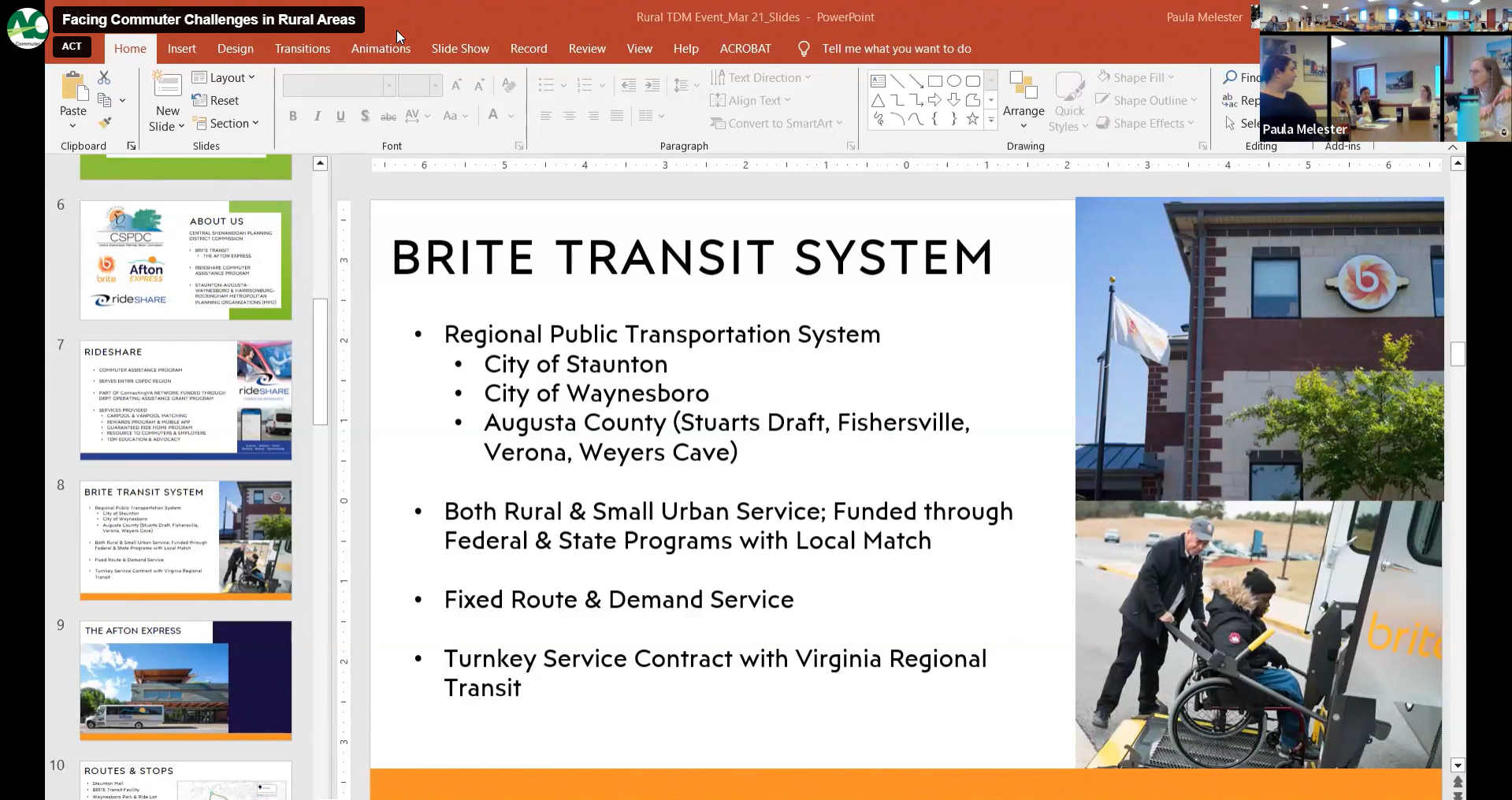Facing Commuter Challenges in Rural Areas

Written by ACT's Chesapeake Chapter
The ACT Chesapeake Chapter has spent the last few years creating events that are geographically diverse and free to members to encourage networking and professional development opportunities. Program considerations have been chosen based on member survey feedback to meet the interests in a post-pandemic landscape, including roundtable discussions, legislative sessions, micromobility, and vanpooling. In January 2024, the Chapter Events Committee learned of growing event participation challenges that members were facing, including travel and training budget restrictions. In response, the committee created the first ACT hybrid member event on March 21, 2024 and chose to hold the event in a region of the Chapter that has not had a member event held in more than five years, focused on rural transportation challenges. The event proved to be a great success in terms of the topic, participation from in-person and remote attendees, and the hybrid format.
At the event on March 21, Central Shenandoah Planning District Commission (CSPDC) staff shared their experience in launching and operating the Afton Express, and provided a forum for colleagues from across the region to talk about their own experiences with TDM in rural areas. The CSPDC operates the BRITE Transit system and the RideShare Commuter Assistance Program in a small urban and largely rural landscape. They, like many of their rural counterparts, recognize that rural transportation demand management comes with different challenges than in the urban and metropolitan regions. Through the creation of the Afton Express – a commuter bus service connecting Augusta County, Staunton, and Waynesboro to the City of Charlottesville – the CSPDC has taken steps toward overcoming some of these challenges and shared their insight with our Chesapeake Chapter members.
The hybrid event did pose technical challenges being the ACT organization's first of its kind. Chesapeake Chapter Board members, Theresa McMullin and Leigh Anderson, and the event host, Paula Melester, with assistance from Elizabeth Denton, worked out unique registration requirements and conducted critical test runs to ensure a seamless experience for members. The event required a dedicated individual to manage the online component, serving as a liaison between virtual and in-person attendees. The attendance for the meeting was nearly equally split between virtual and on-site participants and drew ACT members from around the country. The meticulous planning and thorough preparation led to yet another resounding success for the ACT Chesapeake Chapter!

